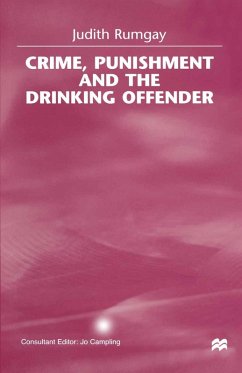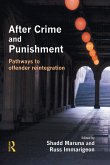Judith Rumgay explores theoretical explanations of the alcohol-crime relationship, critically analyses their empirical support in research, and develops a perspective based on 'expectancy theory', which suggests that alcohol facilitates offending less through its real pharmacological effects than through the variety of common sense beliefs about those effects which are embedded in everyday life. An empirical study of magistrates' sentencing decisions illuminates the diversity of explanations for crime based on intoxication, through the appeal to common sense beliefs about alcohol's effects.
Dieser Download kann aus rechtlichen Gründen nur mit Rechnungsadresse in A, B, BG, CY, CZ, D, DK, EW, E, FIN, F, GR, HR, H, IRL, I, LT, L, LR, M, NL, PL, P, R, S, SLO, SK ausgeliefert werden.









